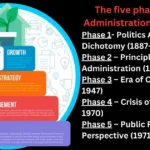As a citizen of India, it is essential to understand the Directive Principles of the State Policy (DPSP) in the Indian Constitution. These principles play a crucial role in shaping India’s governmental framework and guiding its socio-economic policies. By understanding the DPSP, you can identify your role in contributing to the nation’s progress and development. The Directive Principles of State Policy in the Indian Constitution are like the compass guiding the nation towards its welfare and justice goals. These principles, often referred to as the “soul of the Constitution,” outline a vision for a just, equitable, and progressive society. Like stars in the night sky, they illuminate the path for policymakers, encouraging them to craft laws and policies that prioritize the well-being of every citizen. In this journey towards a better India, let’s delve into the constellation of the Directive Principles and understand how they shape the nation’s destiny.
Key Takeaways:
- The Directive Principles of the State Policy (DPSP) are an essential component of the Indian Constitution.
- Understanding the DPSP is vital to contributing to the nation’s progress and development.
- The DPSP guide India’s socio-economic policies and shape its governmental framework.
- As a citizen of India, it is your responsibility to be aware of the DPSP and your role in implementing them.
Historical Background of Directive Principles

Understanding the importance of the Directive Principles of the State Policy (DPSP) requires exploring their historical background and their relationship with fundamental rights. When the Indian Constitution was adopted in 1950, it not only enshrined fundamental rights but also included DPSP. In fact, the fundamental rights and directive principles are seen as being complementary to each other. While fundamental rights are designed to protect the individual, DPSP intends to secure the welfare of the community at large.
The Constitution’s drafters believed that the fundamental rights of individuals would be incomplete without DPSP. These principles are constitutional guidelines that the government must keep in mind while making laws, implementing policies, and taking decisions. DPSP has its roots in the idea of creating a welfare state in India. The Indian Constitution is unique in providing an elaborate set of constitutional directive principles, which aim to establish socio-economic democracy in India.
Objectives and Scope of Directive Principles
The Directive Principles of State Policy in the Indian Constitution are enshrined in Articles 36 to 51. These principles provide guidelines to the government to achieve socio-economic justice and the overall welfare of the people. Here is a list of Articles 36 to 51 related to Directive Principles of State Policy:
- Article 36: Definition of the State.
- Article 37: Application of the principles contained in this Part.
- Article 38: State to secure a social order for the promotion of welfare of the people.
- Article 38(1): Promotes the welfare of the people by securing a social order that provides for justice, social, economic, and political.
- Article 38(2): Requires the State to minimize inequalities in income, not just among individuals but also between groups of people and regions.
- Article 39: Certain principles of policy to be followed by the State.
- Article 39(a): Requires the State to secure adequate means of livelihood for all citizens.
- Article 39(b): Requires the State to ensure the ownership and control of material resources are distributed in a way that serves the common good.
- Article 39(c): Requires the State to operate the economic system to prevent the concentration of wealth and means of production.
- Article 39(d): Requires the State to secure equal pay for equal work for both men and women.
- Article 39(e): Requires the State to ensure that the health and strength of workers, men, and women, and children are not abused and that citizens are not forced by economic necessity to enter avocations unsuited to their age or strength.
- Article 39(f): Requires the State to promote the welfare of children.
- Article 39(g): Requires the State to protect and improve the environment.
- Article 39(h): Requires the State to protect monuments and places and objects of artistic or historic interest that are of national importance.
- Article 40: Organization of village panchayats.
- Article 41: Right to work, to education, and to public assistance in certain cases.
- Article 41(a): Guarantees the right to work, meaning that the State should ensure that citizens are provided with opportunities for employment.
- Article 41(b): Guarantees the right to education for children.
- Article 41(c): Ensures that the State provides public assistance in cases of unemployment, old age, sickness, and disablement.
- Article 42: Provision for just and humane conditions of work and maternity relief.
- Article 43: Living wage, etc., for workers.
- Article 43A: Participation of workers in management of industries.
- Article 44: Uniform civil code for the citizens.
- Article 45: Provision for free and compulsory education for children.
- Article 46: Promotion of educational and economic interests of Scheduled Castes, Scheduled Tribes, and other weaker sections.
- Article 47: Duty of the State to raise the level of nutrition and the standard of living and to improve public health.
- Article 48: Organization of agriculture and animal husbandry.
- Article 48A: Protection and improvement of environment and safeguarding of forests and wildlife.
- Article 49: Protection of monuments and places and objects of national importance.
- Article 50: Separation of judiciary from the executive.
- Article 51: Promotion of international peace and security.
Directive Principles of the State Policy in the Indian Constitution are a set of constitutional guidelines that provide a framework for Indian governance. They aim to promote socio-economic policies and create a welfare state in India. The objectives of Directive Principles are to ensure social, economic, and political justice and promote the overall well-being of the citizens.
The scope of Directive Principles is vast and covers a wide range of areas such as health, education, agriculture, and human rights. These principles are not enforceable by the courts but serve as a guiding force for the government while creating new laws and policies. Directive Principles act as a moral compass for the government to promote the welfare of the people and secure justice.
Indian governance is heavily influenced by Directive Principles, and they have played a significant role in shaping the socio-economic policies in the Indian Constitution. The principles have been an integral part of the Indian Constitution since its inception, and they continue to be relevant in contemporary times as they guide the government in addressing the challenges and needs of the citizens.
Social Justice in the Indian Constitution

The concept of social justice is central to the Directive Principles of the State Policy (DPSP) in the Indian Constitution. DPSP aims to establish a welfare state in India and ensure that the benefits of economic development reach all sections of society. It recognizes the need to bridge the gap between the rich and poor and promote social and economic equality.
The Constitution includes several provisions to promote social justice, such as the reservation of seats in educational institutions and government jobs for socially and economically disadvantaged groups. DPSP also provides for the protection of the weaker sections of society, including women, children, and minorities.
The constitutional provisions for social justice have been crucial in shaping India’s governance and social policies. For instance, the Right to Education Act and various affirmative action policies are based on DPSP. These policies have helped to provide access to education and opportunities to marginalized communities, thereby promoting social justice and reducing inequality.
DPSP recognizes the importance of social justice in building a just and equitable society. The constitutional provisions for social justice are aimed at creating a level playing field for all sections of society and promoting a fair and just society. Though progress has been made, there is still a long way to go in ensuring social justice for all in India.
In conclusion, social justice is one of the key pillars of the Directive Principles of the State Policy in the Indian Constitution. Constitutional provisions for social justice have played a crucial role in shaping India’s governance and social policies, and they remain important as India strives towards becoming a more just and equitable society.
Economic Viability and Development
Directive Principles of the State Policy in the Indian Constitution aim to establish a welfare state that ensures economic progress and development. While social justice remains a critical factor, economic viability is equally essential for the growth of a nation.
As a citizen of India, you are an integral part of the socio-economic policies in the Indian Constitution. Your role is to uphold the fundamental duties outlined by the Constitution and contribute to the development of the nation. By participating in the economy through productive work, you can contribute to the country’s economic growth and viability.
In addition, the government has a critical role in shaping the economic policies that govern the country. Implementing measures that promote economic growth and development while ensuring social welfare is a significant challenge that requires careful consideration. The government must prioritize policies that foster economic opportunities for all citizens while addressing the needs of the marginalized sections of society.
The concept of a welfare state reflects the government’s commitment to balancing socio-economic policies for the greater good of the nation. This approach requires a delicate balance between economic growth and social welfare, with both being equally important for the country’s development.
By working together as a nation, we can ensure that the objectives of the Directive Principles are met and that India continues to emerge as a global force in the 21st century.
Fundamental Duties and Fundamental Rights
As an Indian citizen, you have fundamental rights and fundamental duties enshrined in the Indian Constitution. While fundamental rights protect your individual freedoms, fundamental duties outline your civic responsibilities to uphold the sovereignty, unity, and integrity of India.
The Constitution makes it mandatory for you to fulfill these duties, as they contribute to the larger goal of achieving socio-economic progress and national development. You have a duty to respect the national flag and anthem, protect public property, and safeguard the environment. You must also promote harmony and brotherhood among all communities, and defend the country against external aggression and internal disturbances.
Directive Principles of the State Policy complement the fundamental rights and duties of Indian citizens. They provide a set of constitutional provisions that guide the government in promoting social welfare, economic growth, and equitable distribution of resources.
While fundamental rights and duties are justiciable and enforceable through the courts, Directive Principles are non-justiciable. This means that the government is not legally bound to implement them, but they serve as moral and political guidelines for the state to follow in its policy-making.
The Constitution emphasizes the interdependence of fundamental rights and duties. For instance, the right to free speech and expression comes with the duty to use it responsibly and not infringe upon the rights of others. Similarly, the right to education is complemented by the duty to attend school and learn diligently.
India’s democratic system is built on the principles of equality and justice, and the interplay between fundamental rights, fundamental duties, and Directive Principles ensures that these values are upheld. By conscientiously fulfilling your fundamental duties and demanding the implementation of Directive Principles, you play a vital role in shaping India’s governance and ensuring progress for all.
Implementation Challenges and Criticisms
Despite the constitutional and social significance of Directive Principles of the State Policy in the Indian Constitution, their implementation has faced several challenges and criticisms. The DPSP guidelines have been criticized for being too vague and aspirational, lacking the necessary legal enforceability to ensure compliance and implementation by the government.
Some critics argue that these principles promote a dependency on the state and a culture of entitlement rather than individual responsibility and initiative. Others argue that DPSP provisions can be subject to political misuse and manipulation by those in power, leading to selective implementation and neglect of certain sections of society.
The implementation of DPSP guidelines also faces practical challenges in terms of resource allocation, due to India’s complex socio-economic realities and regional disparities. Resource constraints, scarce government funds, and a lack of political will can often hinder the implementation of DPSP guidelines, leading to delays and inefficiencies in the realization of their objectives.
Despite these challenges and criticisms, understanding and implementing Directive Principles remains a crucial element in shaping India’s socio-economic development and governance. Addressing these implementation challenges and criticisms through effective policy-making and institutional reforms is necessary to ensure the successful implementation of DPSP guidelines and to foster a better and more equitable society.
Role of Citizens in Uplifting the Nation

As a citizen of India, you play a crucial role in shaping the implementation of Directive Principles of the State Policy in the Indian Constitution. The State Policy in the Indian Constitution is designed to guide the government in promoting the welfare and well-being of its citizens, and as such, you have a responsibility to ensure that DPSP is effectively implemented.
Your role in uplifting the nation through DPSP includes actively engaging in the democratic process. You have the right to vote and participate in the functioning of Indian governance. Through your active participation, you can hold elected officials accountable for fulfilling their duties as prescribed by the Indian Constitution.
In addition to participating in the democratic process, you can also contribute to the implementation of DPSP through your personal actions. This can include volunteering for social welfare organizations, engaging in philanthropic activities, and advocating for social justice reforms. These actions can significantly contribute to the betterment of Indian society and help ensure that DPSP is fully implemented.
Moreover, it is essential to understand the constitutional provisions within the state policy in the Indian Constitution, including Directive Principles, and recognize the impact they have on your civic responsibilities. As a citizen of India, you have fundamental duties that complement your fundamental rights, and it is vital to understand the interplay between these two elements in Indian governance.
By embracing your role within the democratic process and taking personal responsibility for implementing DPSP, you can play a crucial role in uplifting the nation and ensuring the success of the Indian Constitution’s state policy provisions.
Evolution and Adaptability of Directive Principles
The Directive Principles of State Policy (DPSP) have been an integral part of the Indian Constitution since its inception. While they are not legally enforceable, DPSP provides a broad framework for the socio-economic development of the country. Over the years, these principles have evolved and adapted to keep up with the changing times and emerging challenges.
The DPSP was first introduced in the Indian Constitution in 1950. Since then, it has been amended several times to reflect the changing needs of Indian society. The judiciary and the government have played a crucial role in interpreting and applying DPSP in various contexts.
An important example of the evolution of DPSP is the inclusion of Article 21A, which guarantees free and compulsory education to all children between the ages of six and fourteen. This provision was added to the Constitution in 2002 through the 86th Constitutional Amendment, reflecting the changing needs of Indian society.
The government has also incorporated DPSP into its policy-making processes. For example, the National Rural Employment Guarantee Act, 2005, reflects the principles of social and economic justice enshrined in DPSP. The Act guarantees a hundred days of wage employment to every rural household in India.
However, there have been challenges in implementing the DPSP. Some critics argue that these principles are too idealistic and cannot be implemented in a practical manner. Others argue that they are too vague and do not provide clear guidelines for action. Nevertheless, the government and civil society continue to debate and explore ways to implement DPSP more effectively.
In conclusion, the evolution and adaptability of Directive Principles reflect the changing needs and aspirations of Indian society. These principles have been interpreted and applied in various contexts, and the government has incorporated them into its policy-making processes. While there have been challenges in implementing DPSP, they continue to play an important role in shaping Indian governance and fostering socio-economic progress.
You Can Read: Fundamental Duties in the Indian Constitution
Conclusion
Understanding Directive Principles of the State Policy in the Indian Constitution is crucial for every citizen. These principles provide a set of constitutional guidelines for Indian governance, outlining the objectives and scope of socio-economic policies. The DPSP aim to establish a welfare state while ensuring economic viability and development. As a citizen, you have a role to play in uplifting the nation by implementing these principles. By fulfilling your fundamental duties and exercising your fundamental rights, you can contribute to the success of DPSP. Despite implementation challenges and criticisms, Directive Principles have evolved and adapted to contemporary issues and challenges. They remain a significant aspect of the Indian Constitution, shaping the framework of governance. In conclusion, understanding and implementing Directive Principles is essential for the progress and development of India. As a citizen, you have the responsibility to participate in the realization of DPSP, contributing to the socio-economic progress of the country. So, be aware of the constitutional provisions and make a positive impact on the nation.
FAQ
Q: What are Directive Principles of the State Policy in the Indian Constitution?
A: Directive Principles of the State Policy (DPSP) are a set of guidelines given to the government to ensure the welfare and development of Indian citizens. They provide principles and objectives for the state to follow in formulating policies and legislation.
Q: What is the historical background of Directive Principles?
A: Directive Principles have their roots in the historical development of the Indian Constitution. They were inspired by the socio-economic ideas and principles of India’s freedom struggle and were included in the Constitution to shape India’s governance and promote the well-being of its citizens.
Q: What are the objectives and scope of Directive Principles?
A: The objectives of Directive Principles are to establish social, economic, and political justice, reduce inequalities, promote the welfare of the people, and create a just and humane society. They provide constitutional guidelines for the government to formulate policies that address these objectives.
Q: What is the concept of social justice in the Indian Constitution?
A: Social justice in the Indian Constitution refers to the principle of ensuring equal opportunities and fair treatment for all individuals. Directive Principles aim to establish a welfare state in India by promoting social justice and eliminating discrimination based on religion, caste, gender, or any other grounds.
Q: How do Directive Principles promote economic viability and development?
A: Directive Principles emphasize the importance of economic viability and development while ensuring social justice. They guide the government in formulating policies that foster economic growth, equitable distribution of resources, and the eradication of poverty, aiming to create a welfare state that benefits all citizens.
Q: What is the relationship between fundamental duties and fundamental rights?
A: Fundamental duties and fundamental rights are complementary aspects of the Indian Constitution. Directive Principles help shape the fundamental rights of Indian citizens by imposing corresponding duties on them. They promote responsible citizenship by highlighting the responsibilities individuals have towards their nation and fellow citizens.
Q: What are the implementation challenges and criticisms surrounding Directive Principles?
A: Implementation challenges and criticisms exist regarding the effective implementation of Directive Principles. Some critics argue that the non-justiciable nature of these principles makes them unenforceable, while others question their feasibility and impact. However, ongoing debates continue to shape the understanding and implementation of DPSP.
Q: What is the role of citizens in uplifting the nation through Directive Principles?
A: Citizens play a crucial role in uplifting the nation by actively participating in the implementation of Directive Principles. By being aware of their rights and duties, citizens can hold the government accountable and contribute to the development and welfare of the nation. Individual responsibility and participation are vital for the success of DPSP.
Q: How have Directive Principles evolved and adapted over time?
A: Directive Principles have evolved and adapted to address contemporary issues and challenges. The judiciary and the government interpret and apply these principles in light of changing socio-economic contexts. This adaptability ensures that DPSP remains relevant in shaping India’s governance and meeting the needs of its citizens.
Q: What is the significance of understanding and implementing Directive Principles?
A: Understanding and implementing Directive Principles is significant for shaping India’s governance and fostering socio-economic progress. By adhering to these principles, the government can ensure the welfare and development of its citizens, promoting social justice, economic viability, and a just society.











